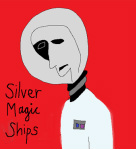
"I mistakenly allowed the distinction between my personal interest and my government activities to become blurred. The consequences of this have become clearer in recent days. I am very sorry for this."(1)
Following the media investigations into this affair it is evident that this "blurring" of the personal and professional is nothing new. Moreover, the tenacity with which Dr Fox attempted to hold on to his job would suggest that he saw nothing wrong with using his elected position to further the ideological beliefs of his closest associates.
Many might consider this affair to be little more than a petty political squabble that pales into insignificance in comparison to the deaths of Lance Corporal Jonathan McKinlay and Marine David Fairbrother, both of whom were killed last month whilst on active duty in Afghanistan. Dr Fox referred to these two men whilst addressing parliament on 10th October. He deserves credit for honouring these soldiers. He also merits praise for recognising the importance of the political maelstrom which raged around him. "Serious issues have been raised here", declared Dr Fox to his fellow politicians.(2)
These "serious issues" are all to do with ethics. In his foreword to the Ministerial Code, David Cameron declared it was his government's "historic responsibility" to renew public confidence in politics and politicians. One way of achieving this was for his colleagues to abide by section 7.1 of the Ministerial Code:
"Ministers must ensure that no conflict arises, or could reasonably be perceived to arise,
between their public duties and their private interests, financial or otherwise."(3)
Dr Fox fell well short of this edict due to his longstanding association with his pseudo advisor (sic) Adam Werritty and their links with the erstwhile "charity" Atlantic Bridge.
But what does any of this have to do with museums? Well, the Fox affair has placed a renewed spotlight on "The Seven Principles of Public Life". These are: selflessness, integrity, objectivity, accountability, openness, honesty and leadership.(4) These principles feature as an annex not only to the Ministerial Code but also to the Code of Ethics for Museums. The latter sets out the "ethical principles for all who work for or govern museums in the UK".
Compare what we know about Dr Fox's behaviour with the following from the Code of Ethics for Museums:
2.6 Avoid any private activity or pursuit of a personal interest that may conflict
or be perceived to conflict with the public interest.
2.17 Avoid being seen as representing the museum if speaking personally or
on behalf of outside organisations whose practices and purposes conflict with
that of the museum.
Now imagine if Dr Fox had been a museum director instead of a Secretary of State for Defence. Consider that a friend of the director had handed out business cards giving the impression that he was representing him and the museum. Then reflect on the implications of unidentified outside interests influencing the museum's collecting policy, exhibition programme or special events. And what if it transpired that associates of the director had links to the art and antiquities market – buying and selling items related to those shown at the museum.
Now ask yourself: would this individual be a fit person to run a museum?
____
Notes
(1) Cited in "Defence Secretary Liam Fox quits", BBC News, accessed 16/10/2011 at, http://www.bbc.co.uk/news/uk-15311615.
(2) Hansard, 10th October 2011, Column 28, accessed 16/10/2011 at, http://www.publications.parliament.uk/pa/cm201011/cmhansrd/cm111010/debtext/111010-0001.htm.
(3) Ministerial Code, May 2010, accessed 16/10/2011 at, http://www.cabinetoffice.gov.uk/sites/default/files/resources/ministerial-code-may-2010.pdf.
(4) This stems from Standards in Public Life: the First Report of the Committee on Standards in Public Life (1995). See: www.public-standards.org.uk.
___________
Supplemental
(19/10/2011)
Cabinet Secretary Sir Gus O'Donnell's official report has concluded that "Dr Fox's actions clearly constitute a breach of the Ministerial Code" (see links below). For his part, Dr Fox acknowledged his shortcomings but sought to portray the "media frenzy" that had surrounded him as something that "should worry all of us." (1) Perhaps Dr Fox would still be in government without this so-called "frenzy"? Be that as it may, his attempt to castigate the media should not distract attention from those issues that remain. The principal unanswered question has been identified by the shadow leader of the House, Angela Eagle: "Why was the defence secretary allowed to treat the ministerial code as if it were an optional extra?" (2)
____
Notes
(1) Anon (2011) "Liam Fox attacks 'vindictiveness, even hatred' of media", BBC News, 19/10,
accessed 19/10/2011 at, http://www.bbc.co.uk/news/uk-politics-15360827
(2) Ibid.
____________
Documentation
Source: Cabinet Office






